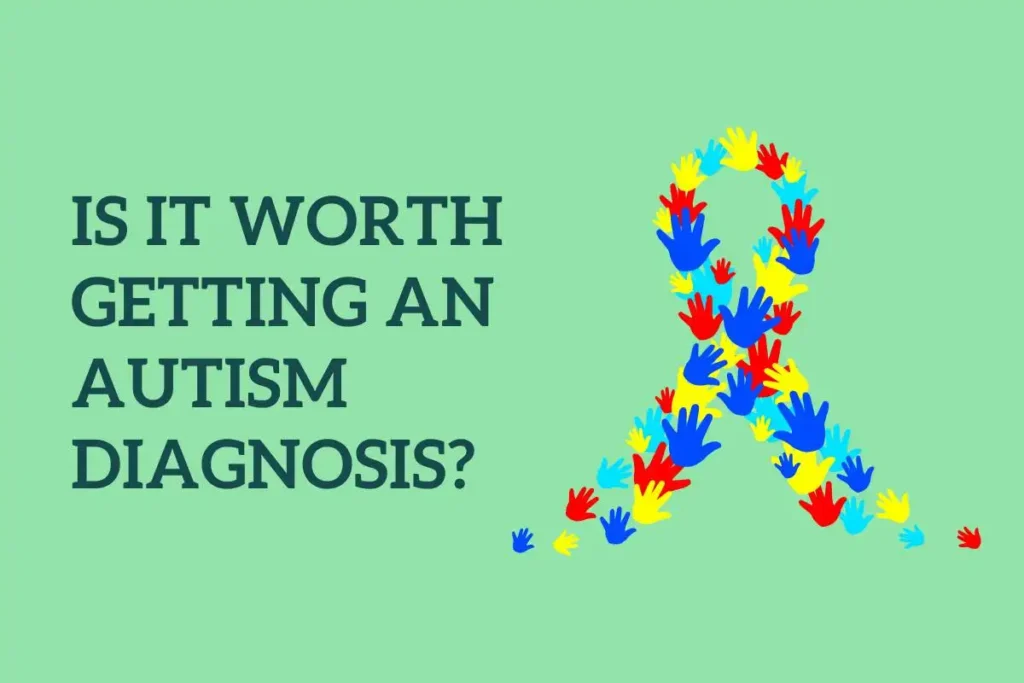Getting an autism diagnosis as an adult can be a life-changing event. It can provide a better understanding of oneself and open up access to support and resources that can help improve one’s quality of life. Here are some of the benefits of getting an autism diagnosis.
Self-Awareness and Personal Insight
One of the primary benefits of getting an autism diagnosis is increased self-awareness and personal insight. Many adults who receive a diagnosis report feeling a sense of relief and validation. They may have struggled for years with social interactions, sensory issues, and other challenges without understanding why. A diagnosis can provide clarity and help individuals better understand their strengths and weaknesses.
Access to Support and Resources
Another benefit of getting an autism diagnosis is access to support and resources. With a diagnosis, individuals can connect with others who share similar experiences and challenges. They can also access specialized services and therapies that can help them manage their symptoms and improve their quality of life. For example, occupational therapy can help individuals with sensory issues, while speech therapy can help with communication difficulties.
Legal Protections and Accommodations
Finally, an autism diagnosis can provide legal protections and accommodations. In many countries, having an autism diagnosis can qualify individuals for disability benefits, which can provide financial support. Additionally, individuals with an autism diagnosis may be eligible for workplace accommodations, such as flexible schedules or modified workspaces. These accommodations can help individuals with autism thrive in the workplace and achieve their full potential.
Considerations Before Seeking a Diagnosis
Before seeking an autism diagnosis, it is important to carefully consider the potential benefits and drawbacks. While a diagnosis can provide valuable insight and access to resources, it can also come with costs and potential stigma and misunderstandings.
Cost and Accessibility
One consideration is the cost and accessibility of a diagnosis. Diagnostic evaluations can be expensive and may not be covered by insurance. Additionally, there may be long wait times to see a specialist for an evaluation. It is important to weigh the financial and logistical costs of pursuing a diagnosis against the potential benefits.
Potential Stigma and Misunderstandings
Another consideration is the potential stigma and misunderstandings that can come with an autism diagnosis. Despite increased awareness and understanding of autism, there is still a great deal of misinformation and stereotypes surrounding the condition. Some individuals may fear being labeled or discriminated against if they receive a diagnosis. It is important to be aware of these potential risks and to seek support from trusted individuals or organizations if needed.
The Diagnostic Process
Getting an autism diagnosis involves a comprehensive assessment by a multidisciplinary team. This team evaluates social communication, interaction, and restricted/repetitive behaviors using the DSM-5 criteria. The process involves reviewing developmental history, conducting structured observations and interviews, and ruling out other conditions.
Professional Evaluations
A psychiatrist (MD), psychologist (PhD), or neuropsychologist (PhD) usually makes the medical diagnosis of autism spectrum disorder (ASD). However, other professionals, such as speech-language pathologists, occupational therapists, and developmental pediatricians, may also be involved in the diagnostic process. These professionals work together to evaluate the individual’s strengths and challenges and develop an appropriate treatment plan.
Criteria and Assessment Tools
The DSM-5 criteria for ASD include deficits in social communication and social interaction, as well as restricted, repetitive patterns of behavior, interests, or activities. The assessment of these criteria involves the use of various assessment tools, including standardized tests, questionnaires, and interviews. These tools help to identify the presence and severity of ASD symptoms and guide the diagnostic process.
Post-Diagnosis: What Comes Next
After receiving an autism diagnosis, individuals and their families may wonder what comes next. Here are some steps to take after receiving a diagnosis:
Developing a Personalized Support Plan
Developing a personalized support plan is an important step after receiving an autism diagnosis. This plan should include strategies for managing daily life, such as developing routines and coping mechanisms for sensory sensitivities. It may also include therapies and interventions, such as behavioral therapy or occupational therapy, to help individuals develop social and communication skills.
It is important to work with healthcare providers, therapists, and other professionals to develop a personalized support plan that meets the individual’s unique needs. This plan may evolve as the individual’s needs change.
Community and Social Connections
Community and social connections can be important sources of support for individuals with autism and their families. Joining support groups or participating in social activities can provide opportunities to connect with others who share similar experiences. It can also provide a sense of belonging and reduce feelings of isolation.
There are many organizations and resources available to support individuals with autism and their families. These may include local support groups, online communities, and advocacy organizations. It can be helpful to research and explore these resources to find the ones that best meet the individual’s needs.







